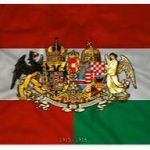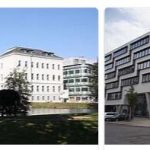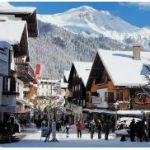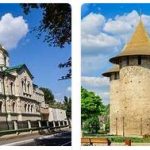Austria Arrival and transport
In order to avoid trouble with the police or even the courts, one should strictly adhere to the traffic rules applicable in the country. The maximum speeds shown can of course be reduced or increased by traffic signs. Regardless of the information given here, it is advisable to obtain detailed information from the ADAC, the AvD or the Austrian Transport Club.
Maximum speeds, IG-L
As a matter of principle, in addition to the general speed limits shown, the speed limits indicated by signs must be strictly observed. Even the slightest speeding offense is punished with quite high fines. There is a special feature :
If a speed limit is marked with the addition “IG-L” on the electronic display boards, a speeding violation is subject to a considerably higher fine than usual. IG-L stands for Immissionsschutz-Gesetz-Luft. In this respect, one is also guilty of an environmental violation. If you exceed 20 km/h, for example, € 200 can be due very quickly!
- Urban: in built-up areas there is a speed limit of 50 km/h
- Country roads: there is a speed limit of 100 km/h on country roads
- Motorways: there is a speed limit of 130 km/h on motorways
Special regulations
Since May 2005, domestic and foreign drivers of motor vehicles have been obliged to wear safety vests. Such a vest must be red, orange or yellow and comply with ÖNORM EN 471.
Yellow zigzag lines on the road mean that no parking is allowed.
Since April 15, 2006, dipped headlights must also be used in Austria during the day – regardless of the weather. Violations can result in fines of € 15 to € 5,000.
When driving over the Brenner, you need winter tires from November 15th to April 15th – regardless of the weather conditions.
Blood
alcohol limits In Austria there is a blood alcohol limit of 0.5 parts per thousand for drivers of motor vehicles. The same rule applies to drivers of motorcycles.
Winter tires
The rules as to when winter tires must be used in Austria vary from state to state. But to be on the safe side, it is advisable to use winter tires from the beginning of November to April 15th.
Winter tires are compulsory on the Brenner from November 15th to April 15th.
Emergency call
In the event of an accident or other problems with the car or motorcycle, you can get information and help at the following numbers:
Tel.: 01 251 20 60
Mobile: 0043 – 1 – 251 20 60
Police: 133 You can reach
the ADAC 24 hours a day in Munich under the following number:
0049 – (0) 89 – 22 22 22
Great tunnels and passes
Bosruck road tunnel
This 5,400 m long single-tube tunnel is part of the A9 motorway, which runs for around 230 km from the Voralbergkreuz junction via Graz to Spielfeld on the Slovenian border. In Slovenia it changes to the A1, which leads via Maribor to Ljubljana and on towards the Adriatic Sea.
The toll for cars and motorcycles is € 4.50.
Brenner Pass
The Brenner, as the pass is often called, is one of the oldest routes through the Alps.
Today’s Brenner connects the Austrian Tyrol with the Italian South Tyrol.
An important part of this motorway connection is the European tunnel in Austria as part of the A13.
On the Italian side it is the A22, which leads to all important Italian cities via Bolzano and Verona. The pass is at an altitude of 1,375 m.
The motorway connection over the Brenner Pass was opened to traffic with the Europabrücke on November 17, 1967.
The Brenner motorway is subject to a toll and costs € 8 for cars and motorbikes on the Austrian side, and € 4.90 on the Italian side.
If you have a lot of time and want to save the toll, you can also use the old and winding Brennerstrasse
Brenner Base Tunnel
In 2015, the 55 km long Brenner Base Tunnel is to be opened as a rail link
Felbertauern Tunnel
The 5.304 m long road tunnel opened in 1967 connects Kufstein in the state of Tyrol with Cortina in Italy and Spittal an der Drau in the state of Carinthia.
The toll is € 10 for cars and € 8 for motorcycles.
Gleinalm tunnel
This 8,320 m long, single-tube road tunnel is, like the Bosruck tunnel, part of the A9 motorway. The A9 runs for around 230 km from the Voralbergkreuz junction via Graz to Spielfeld on the Slovenian border. In Slovenia it changes to the A1, which leads via Maribor to Ljubljana and on towards the Adriatic Sea. The toll for cars and motorcycles is € 7.50.
Großglockner High Alpine Road
This pass was built between 1930 and 1935 as a road connection between the federal states of Salzburg and Carinthia. Over a distance of around 48 km, it connects the town of Bruck in the state of Salzburg with Heiligenblut in Carinthia. As a transit road, the high alpine road is now hardly of any importance. But from a tourist point of view, a trip on this route – by the way also well suited for cyclists – past Austria’s highest mountain, the 3,798 high Grossglockner, is a uniquely beautiful experience. A day pass for cars and motorcycles costs € 28.
Karawanken Tunnel
The Karawanken Tunnel was opened in 1991 and completed in 1992. The single-tube tunnel, around 9.8 km long, connects Austria with Slovenia via the A11 motorway and, of course, with the capital Llubljana. The tunnel begins on the Austrian side at Sankt Jakob in Carinthia and on the Slovenian side in Jesenice.
The tunnel is open all year round. The toll is € 6.50 for cars and motorcycles.
Reschenpass
The Reschenpass connects Tyrol in Austria with the Vinschgau in South Tyrol/ Italy. Take the B 180, for example, from Landeck over the pass and then on the state road SS40, for example to Meran and on to Bozen, where you come across the Brenner motorway. The pass is at an altitude of 1,504 m, but the border is about 2 km north of it. Driving on the pass is toll-free.
Silvretta Hochalpenstraße
This pass road was opened in 1954. It stretches from Partenen in the state of Vorarlberg to Galtür in the state of Tyrol and is part of the federal highway B188. In winter the pass road is closed to through traffic. The pass is at an altitude of 2,037 m on the Bielerhöhe. This is also where the Silvretta reservoir is located, which dams the Ill. The pass road is toll road and costs € 11.50 for a car.
Tauern tunnel
The 6,401 m long Tauern tunnel connects Salzburg with Villach via the A10 – the Tauern motorway. The tunnel begins at Flachauwinkel and ends at Zederhaus. The second tunnel tube was officially opened on June 30, 2011, so that considerably fewer traffic jams can be expected from this point on.
The toll for the Tauern tunnel and the subsequent Katschberg tunnel is € 10 for cars and motorbikes. The toll station is behind the tunnel when viewed from Salzburg.
Katschberg Tunnel
The Katschberg Tunnel connects Salzburg with Spittal via the A13, from where you can continue via the Karawanken Tunnel to Slovenia, Klagenfurt or via Udine to Venice, Verona etc.
The toll for the Katschberg tunnel and the Tauern tunnel on the same route is € 9.50 for cars and motorcycles – in addition to the motorway sticker.
Tauernschleuse
The railway Tauern tunnel, also known as the Tauern lock, is an 8,371 m long railway tunnel that crosses the Hohe Tauern. The tunnel was completed in 1906 and electrified in 1926. In 2004, important renovation work was completed, particularly with regard to safety in the tunnel. The two car loading stations are located in Böckstein in the state of Salzburg and in Mallnitz in the state of Carinthia. The passage through the tunnel takes about 13 minutes and costs € 17 for a car and € 15 for a motorcycle. Vehicles with LPG or natural gas engines are not allowed to pass through the tunnel.
Timmelsjoch High Alpine Road
A uniquely beautiful pass road from Obergurgl in the Ötztal in the state of Tyrol to the Passeier Valley in South Tyrol in Italy and on to Merano. The pass is at 2,474 m. The pass is closed from 8:00 p.m. to 7:00 a.m. and from mid-October to mid-June. This road connection was officially opened on September 15, 1968 in both directions. But the pass was mentioned as Thymels as early as 1241.
Travel in the country
Air connections Domestic air traffic in Austria is handled by the airlines Rheintalflug and Tyrolean Airlines. There are flights to Vienna, Graz, Innsbruck, Linz, Klagenfurt and Salzburg.
Bus Bus
routes are particularly important in the Alpine regions. There are more than 2,000 bus routes that connect almost every place in the country.
Railway
The state railway company ÖBB (Austrian Federal Railway) ensures good and fast connections within Austria. The rail network is very well developed.
Road network
Austria’s road network is very dense and in good condition. However, pass roads may be closed from October to May. The use of expressways and motorways is chargeable. The required vignettes are offered for 1 year, 2 months or 10 days. They must be purchased and placed on the windshield before driving on the toll roads. It is a popular “game” of the Austrian police, shortly after the border on the autobahn, to demand high fees from tourists, since many people unknowingly cross the border without a vignette. At speed controls, exceeding a few km/h is subject to relatively high fines.
Pay attention to the signs with the designation IG -L. That means Immissionsschutzgesetz – Luft. If you drive too fast, you will have to pay a fine for violating this law in addition to the fine for “speeding up” on the motorways marked in this way. That can get pretty expensive.
Vignette prices
The following fees apply to vehicles with a gross vehicle weight of up to 3.5 t:
1 year: € 73.80
2 months: € 22.20
10 days: € 7.70
And for motorcycles (single-track vehicles):
1 year: € 29.50
2 months: € 11.10
10 days: € 4.40
Car rental
In Austria there are all known car rental companies.
International license plate
Austria’s license plate is:
| A |
Tourist office
Austrian Tourist Office in Germany
Klosterstr. 64
10179 Berlin
Tel: 01802 – 10 18 18
Fax: 01802 – 10 18 19
Email: urlaub@austria.info
Web: www.austria.info
Austrian Tourist Office in Switzerland
Tel: 0842 – 10 18 18
FAX: 0842 – 10 18 19
Email: ferien@austria.info
Web: vacances@austria.info
Austria: entry and exit regulations
Formalities, visas
German citizens can enter Austria with a passport or identity card (including the provisionally issued). For children up to the age of sixteen, entry is possible with a child ID card or with an entry in the passport of one of the parents. but because of the Schengen Agreement, there are no more regular controls at the border with Germany and Italy.
People who need a visa can get it at the following address.
Embassy
Stauffenbergstrasse 1
10785 Berlin
Tel: +49 – (0) 30-20 28 70
Fax: +49 – (0) 30-2 29 05 69 Email: berlin-ob@bmaa.gv.at
www.oesterreichische-botschaft.de
Consulates and representations of Austria and Switzerland
See at the end of the article
Import and export of foreign currency
The import and export of national and foreign currency is unlimited.
Import and export of goods
The import and export of weapons, ammunition or explosives is strictly prohibited. In addition, the import and export of plants and animals protected under the Washington Species Protection Act is prohibited. Violation can result in severe penalties.
Entry with pets
For the owners of dogs and other animals, when traveling abroad, the question arises whether they can even take their animals with them to the chosen travel destination, and if that is possible, then of course the question of the respective applicable conditions arises. Here with us you will find all the important information on this topic, seriously researched at the embassies or the Foreign Office.
In Austria, the EU regulation on the import and export of pets from October 1st, 2004 applies. This states that pets must be marked with an electronic chip in order to be able to guarantee a clear identification of the animals (up to the year 2011 a legible tattoo is sufficient, by which the animal must be clearly identifiable). In addition, you must always carry your EU pet passport with you when you travel, which can be issued by all resident veterinarians and which must show that the animal in question has been vaccinated against rabies. The rule is that the animals must be at least twelve weeks old when they are first vaccinated. To enter Austria, the rabies vaccination must have been given at least 21 days in advance and at the same time must not have been more than twelve months ago.
If the animal in question is younger than twelve weeks, it is still possible under certain circumstances to enter Austria with it. To do this, however, it must be ensured that the animal is either tattooed or has a chip, an EU pet passport has been issued to the animal and that the animal has been kept at the place of its birth since birth, where it has no contact with wild animals may have come.
Austria: travel medicine, vaccinations and warnings
Infectious Diseases
In Austria, the following infectious diseases are to be expected that are somewhat more common than in Germany or Central and Northern Europe:
- Lyme disease, as a result of tick bites
- Early summer meningo encephalitis, mainly as a result of tick bites
- Fox tapeworm
Vaccination recommendations When traveling to Austria, the same vaccinations are recommended as in Germany and Switzerland:
- Cholera, but only among travelers who can come into contact with polluted water or contaminated food
- Diphtheria, a vaccination against diphtheria should always exist in your home country.
- Hepatitis A and B, a vaccination against hepatitis B, is only required for people who may come into contact with blood or for those who seek sexual contact.
- Polio, polio, a vaccination against polio should always exist, also in the home country.
- Meningococcal meningitis
- Tetanus, a vaccination against tetanus should always exist in the home country.
- Rabies, but only in high-risk travelers who can come into contact with the vector animals
Vaccination requirements There are no vaccination regulations when entering or staying in Austria.
Warning notices
Foreign Office of the Federal Republic of Germany
Citizens’ Service
Phone: 0049 – (0) 30 – 5000 – 2000
Fax: 0049 – (0) 30 – 5000 – 51000
www.auswaertiges-amt.de
Austria: currency and shopping
The national currency of Austria is the
euro = 100 cents.
The following bills are valid and in circulation:
- 500
- 200
- 100
- 50
- 20th
- 10 and
- 5 euros
Bank opening hours
- Monday: 8:00 a.m. – 12:30 p.m. and 1:30 p.m. – 3:00 p.m.
- Tuesday: 8:00 a.m. – 12:30 p.m. and 1:30 p.m. – 3:00 p.m.
- Wednesday: 8:00 a.m. – 12:30 p.m. and 1:30 p.m. – 3:00 p.m.
- Thursday: 8:00 a.m. – 12:30 p.m. and 1:30 p.m. – 5:00 p.m.
- Friday: 8:00 a.m. – 12:30 p.m. and 1:30 p.m. – 3:00 p.m.
- Saturday: closed
- Sunday: closed
Shop
Shop opening times
The shops in the cities are open until 5:00 p.m. every first Saturday of the month. In the smaller towns there is usually a lunch break from 12:00 p.m. to 2:00 p.m. or 3:00 p.m. Grocery stores often open before 8:00 a.m.
- Monday: 9 a.m. – 6 p.m.
- Tuesday: 9 a.m. – 6 p.m.
- Wednesday: 9 a.m. – 6 p.m.
- Thursday: 9 a.m. – 6 p.m.
- Friday: 9 a.m. – 6 p.m.
- Saturday: 9 a.m. – 12 p.m.
- Sunday: closed
Cheap or country-specific goods, souvenirs
Above all, handicrafts such as ceramics, wood carvings and blacksmithing are beautiful souvenirs from Austria. Traditional costumes and/ or costume jewelery are also popular souvenirs. And of course you shouldn’t forget the delicious pastries and confections. Many also bring home one or more bottles of 60% and 80% straw rum.
Austria: embassies, consulates
Representations of Austria in Germany
The building of the Austrian embassy is on Stauffenbergstrasse in the old and new Berlin embassy district. The embassy building was built after an EU-wide architecture competition with 201 participants based on designs by the victorious Viennese architect Hans Hollein. Construction work started in March 1999 and in July 2001 the message was by the Austrian Foreign Minister Benita Ferrero-Waldner – in the presence of Austrian President Thomas Klestil and the German Foreign Minister Joschka Fischer – in a ceremony to open
the embassy compound covers an area of 3,698 m².
Embassy in Berlin
Stauffenbergstrasse 1
10785 Berlin
Tel: 0049 – (0) 30 – 20 28 70
Fax: 0049 – (0) 30 – 2 29 05 69
Email: berlin-ob@bmaa.gv.at
Web: www.oesterreichische-embassy.de
Consulate General Hamburg
Alsterufer 37
20354 Hamburg
Tel: 0049 – (0) 40 – 41 32 95 00
Fax: 0049 – (0) 40 – 45 29 07
E-Mail: hamburg-gk@bmeia.gv.at
Web: www.oesterreichische- botschaft.de
Consulate General Munich
Ismaninger Strasse 136
81675 Munich
Tel: 0049 – (0) 89 – 9 98 150
Fax: 0049 – (0) 89 – 9 81 02 25
E-Mail: muenchen-gk@bmeia.gv.at
Web: www.oegkmuenchen.de
You can find other honorary consulates in: Bremen, Dresden, Düsseldorf, Hanover, Kiel, Lübeck, Nuremberg, Rostock-Bentwisch, Saarbrücken and Stuttgart.
German representations in Austria
Embassy of the Federal Republic of Germany in Vienna
Metternichgasse 3
1130 Vienna
Tel: 0043 – (0) 1 – 71 15 40
Fax: 0043 – (0) 1 – 713 83 66
Email: info@wien.diplo.de
Web: www.wien.diplo.de
Consulates
Honorary Consulate of the Federal Republic of Germany
Mariahilfstrasse 27 – 31
6900 Bregenz
Tel: 0043 – (0) 5574 – 4 31 80
Fax: 0043 – (0) 5574 – 4 70 83
Email: deutscher.honorarkonsul.bregenz@vol.at
Honorary Consulate of the Federal Republic of Germany
Statteggerstr. 18
8045 Graz
Tel: 0043 – (0) 316 – 69 49 70
Fax: 0043 – (0) 316 – 690 24 25
Email: deutscher-honorarkonsul-graz@andritz.com
Honorary Consulate of the Federal Republic of Germany
Maria-Theresien-Straße 23/II. Floor
6020 Innsbruck
Tel: 0043 – (0) 512 – 570 19 90
Fax: 0043 – (0) 512 – 57 01 99 14
Email: deutscher-honorarkonsul.tirol@chello.at
Honorary Consulate of the Federal Republic of Germany
Hauptplatz 11
4010 Linz/Donau
Tel: 0043 – (0) 732 – 79 77 01
Fax: 0043 – (0) 732 – 79 52 72
Email: deutscher.honorarkonsul.linz@oberbank.at
Honorary Consulate of the Federal Republic of Germany
Aribonenstrasse 27
5020 Salzburg
Tel: 0043 – (0) 662 – 43 23 66-300
Fax: 0043 – (0) 662 – 43 23 66-302
Email: deutscher.honorarkonsul@schneiders.com
Swiss representations in Austria
Embassy of the Swiss Confederation in Vienna
Prinz-Eugen-Strasse 7
1030 Vienna
Tel: 0043 – (0) 1 – 795 05
Fax: 0043 – (0) 1 – 795 05 21
E-Mail: vie.vertretung@eda.admin.ch
Web: www.eda.admin.ch/wien
Consulates
Consulate Bregenz
Arlbergstrasse 111A
6900 Bregenz
Tel: 0043 – (0) 557 – 47 36 24
Fax: 0043 – (0) 557 – 47 36 24
E-Mail: bregenz@honorarvertretung.ch
Consulate Graz
c/o Bankhaus Krentschker & Co.AG
Hamerlinggasse 8
8010 Graz
Tel: 0043 – (0) 316 – 803 038 802
Fax: 0043 – (0) 316 – 803 038 961
E-Mail: graz@honorarvertretung.ch
Consulate Innsbruck
c/o Achammer-Tritthart + Partner
Heiliggeiststrasse 16
(ATP-Haus)
6020 Innsbruck
Tel: 0043 – (0) 512 – 53 70 15 00
Fax: 0043 – (0) 512 – 53 70 11 00
E-Mail: innsbruck @ honorarvertretung.ch
Consulate Klagenfurt
Pierlstrasse 33
9020 Klagenfurt
Tel: 0043 – (0) 423 – 223 40
Fax: 0043 – (0) 423 – 223 40
E-Mail: klagenfurt@honorarvertretung.ch
Consulate Linz
Eisenhandstrasse 13-15
4010 Linz
Tel: 0043 – (0) 732 – 78 37 41
Fax: 0043 – (0) 732 – 39 96 74
E-Mail: linz@honorarvertretung.ch
Consulate Salzburg
Alpenstrasse 85
5020 Salzburg
Tel: 0043 – (0) 662 – 62 25 30
Fax: 0043 – (0) 662 – 62 35 81 35
E-Mail: salzburg@honorarvertretung.ch
Representations of Austria in Switzerland
Embassy of the Republic of Austria in Bern
Kirchenfeldstrasse 77/79
3005 Bern
Tel: 0041 – (0) 31 – 356 52 52
Fax: 0041 – (0) 31 – 351 56 64
Email: bern-ob@bmeia.gv.at
Web: www.aussenministerium.at/Bern
Consulates
Consulate General of the Republic of Austria
Engelgasse 11
4002 Basel
Tel: 0041 – (0) 61/271 35 35
Fax: 0041 – (0) 58/280 29 10
Email: ralph.honegger@helvetia.ch
Consulate of the Republic of Austria
Case postale 522, Obere Gasse 41
7002 Coire
Tel: 0041 – (0) 81/257 01 95
Fax: 0041 – (0) 81/257 01 91
Email: wunderlich_law@bluewin.ch
Consulate General of the Republic of Austria
Case postale 3098, Rue Imbert Galloix 7
1211 Geneva 3
Tel: 0041 – (0) 22/319 72 88
Fax: 0041 – (0) 22/319 72 85
Email: austria@generalkonsulat-genf.org
Consulate of the Republic of Austria
via Pretorio 7
6901 Lugano
Tel: 0041 – (0) 91/913 40 07
Fax: 0041 – (0) 91/913 40 09
Email: info@consolatoaustria.ch
Consulate of the Republic of Austria
Geltenwilenstrasse 18
9000 St-Gall
Tel: 0041 – (0) 71/230 19 70
Fax: 0041 – (0) 71/230 19 71
Email: info@oe-konsulat-sg.ch
Web: www.oe -consulate-sg.ch
Consulate General of the Republic of Austria
Seestrasse 161
8002 Zurich
Tel: 0041 – (0) 44/283 27 00
Fax: 0041 – (0) 44/280 37 65
Email: zuerich-gk@bmeia.gv.at
Web: www.gkzuerich.ch








